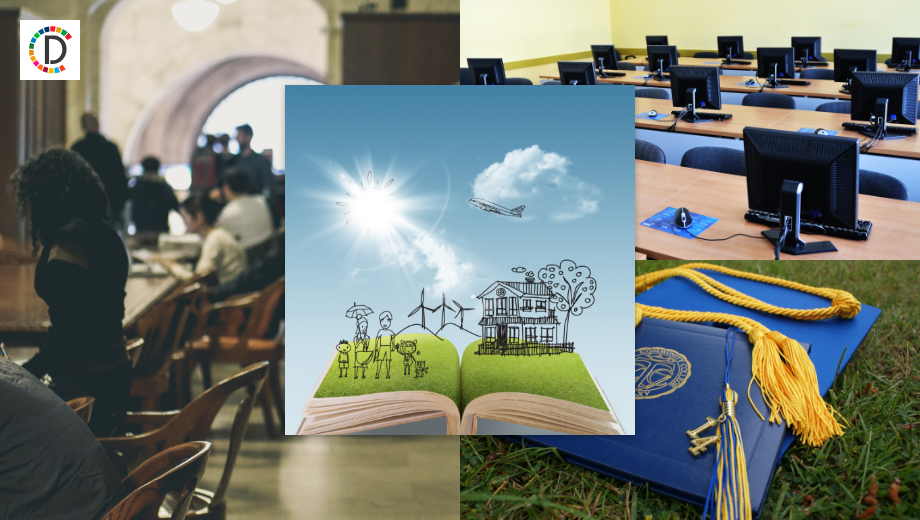NEP misses fundamental goal of human development, expansion of knowledge: Cong

- Country:
- India
The Congress on Sunday said the new National Education Policy misses the fundamental goal of human development and expansion of knowledge, noting that it is high on "catchwords" and "verbosity" but lacks critical finances and a coherent roadmap for implementation. It alleged that the policy has circumvented parliamentary oversight and there has been no discussion with the academia except the RSS.
Addressing a press conference here, Congress leaders MM Pallam Raju, Rajeev Gowda and Randeep Surjewala said the NEP seeks to create a digital divide between the poor and the rich as it promotes privatisation of public education and "this will lead to it going out of reach of the middle class and the disadvantaged in the society". They also questioned the government's intent in raising spending on education to 6 per cent of the GDP, saying the same has fallen from 4.14 per cent of GDP in 2014 to 3.2 per cent currently under the Modi government and is likely to fall further due to cuts in outlays on account of resource crunch due to the Covid-19 pandemic.
"The National Education Policy 2020, which aimed to pave the way for transformational reforms in school and higher education, is high on catchwords, gloss, appearance and verbosity yet lacks a coherent implementational roadmap and strategy, clearly defined milestones and the critical finances necessary to execute this grand vision," they said in a joint statement. "All in all, the NEP 2020 misses the fundamental goal of human development and expansion of knowledge," they said.
The Central government on Wednesday announced sweeping reforms under the new education policy that included teaching in mother tongue or regional language up to class 5, lowering the stakes of board exams, allowing foreign universities to set up campuses in India, a single regulator for higher education institutions except for law and medical colleges and common entrance tests for varsities. The Congress leaders said the timing of NEP in the middle of a pandemic when all educational institutions are closed is, in itself, questionable. More so when almost the entire academia has complained of no consultation, the leaders alleged.
"On a policy that impacts and affects our present and future generations, even parliamentary oversight has been circumvented. Contrast this with the rigorous parliamentary and widespread consultation that preceded the Right to Education Act," they said in the statement. Former HRD Minister Pallam Raju said "there are going to be severe challenges due to the over-centralisation of education sector".
"While the intent seems to be there, there are serious shortcomings in the policy," he said. "In the later stages also, we would like to question, what is the roadmap? What is the resource allocation? How do you plan to implement the broad ideal of universalisation? There's an intent expressed about online education. But there is a wide disparity in the access level for online education; not only due to personal affordability but also in terms of the quality of connectivity. This will bring a large digital divide".
Gowda, a former IIM faculty member, asked where the money is going to come from for funding the ambitious plans. "Or is it going to come out of people's pockets," he asked. "Any policy coming out of the Modi govt. must be assessed against its track record over the last 6 years, for example, the Delhi University. One of the first actions of this government was to abolish the 4-year programme in DU and now we're turning back to it," he added.
Surjewala said the new policy will remain a document on paper as the required finances are not there, asking how does the government propose to fill 12 lakh vacancies of school teachers. As per official records, he added, only 10 per cent of government schools in the country have access to computers and only 4 per cent have network connectivity.
"More than 70 pc children of marginalised sections may be completely excluded as seen during access to online classes in the Covid-19 period. This will also make the rural versus urban divide even stronger on account of absent or diminished internet connectivity/access to computers in the rural areas," he alleged. "There is no mention of scheduled castes, scheduled tribes and other backward classes in the entire policy document. There is no discussion about these underprivileged sections who comprise of over 50 per cent of the country's population," he said.
He said the NEP's professed objective of "critical thinking, creative independence and spirit of enquiry remains empty rhetoric as the BJP regime has systematically attacked universities, obliterated institutional autonomy and stifled freedom of expression among teachers and students alike". Alleging that an "atmosphere of fear, persecution, suppression and subjugation prevails as appointments of BJP-RSS ideologues to man educational institutions by sacrificing meritocracy, is the new normal", he said there are several examples in this regard where there have been attacks on students in campuses.
"Throwing well-established democratic structures for a top-down administration as envisaged by NEP 2020 will end up stifling creativity and critical thinking altogether," he said. Setting up of Higher Education Commission of India as a single overarching body will make it one of the most centralised regulatory institutions, Surjewala said. "Needless to say, this will impede the evolution of higher education".
(This story has not been edited by Devdiscourse staff and is auto-generated from a syndicated feed.)
ALSO READ
Indian Ambassador Ruchira Kamboj condemns humanitarian crisis resulting from Israel-Hamas conflict
Indian Ambassador Ruchira Kamboj condemns the humanitarian crisis resulting from Israel-Hamas conflict
Prime Minister Modi set to lead massive roadshow in Chennai
Saudi Arabia echoes India's stance on Kashmir in joint statement with Pakistan
Indian stock indices open at fresh highs; inflation data, Q4 earnings now in focus










